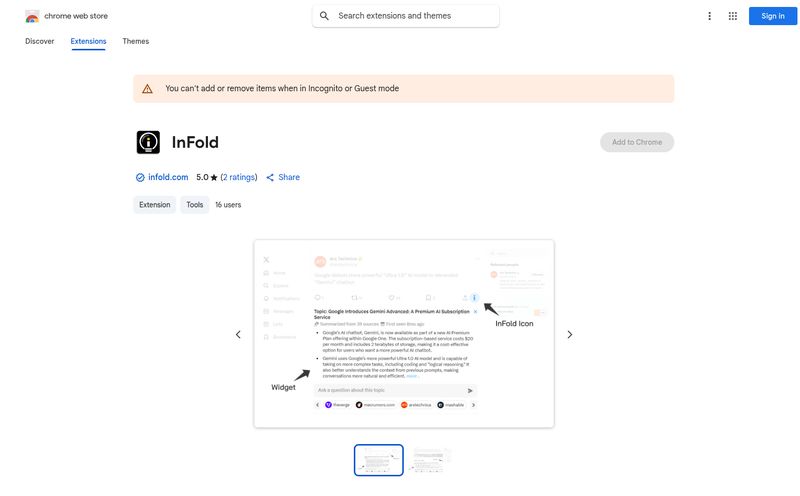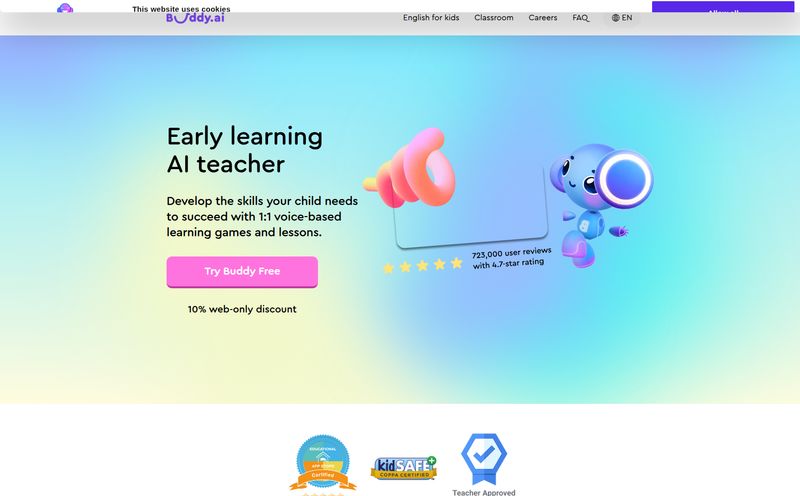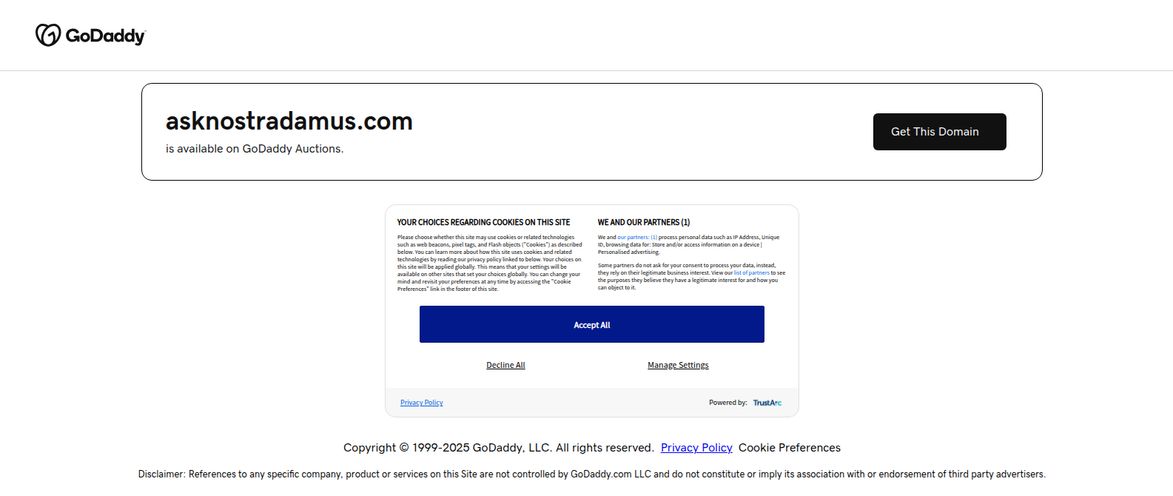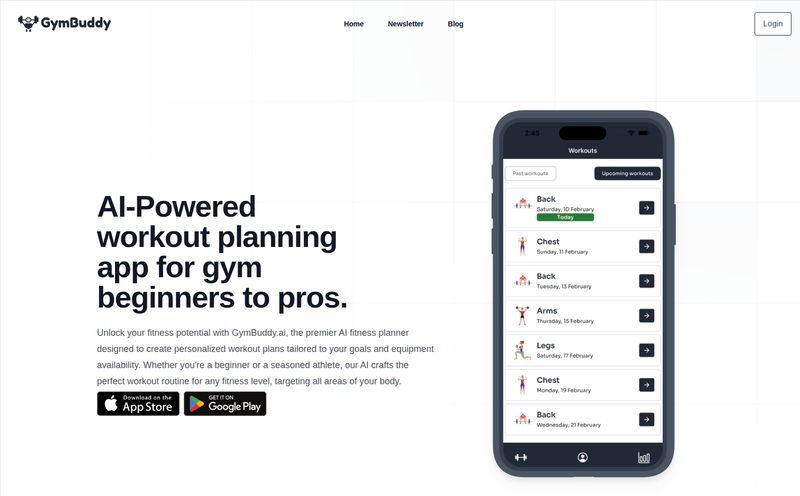How many apps does your team use to get a single project over the finish line? You've got Slack for chats, Asana for tasks, Google Drive for files, maybe Miro for whiteboarding, and Calendly for scheduling. It’s a digital junk drawer. Each subscription nibbles away at your budget, and the constant context-switching is a genuine productivity killer. I’ve lived this nightmare for years, managing client SEO campaigns across a dozen different platforms. The mental fatigue is real.
Every so often, a tool comes along that promises to fix this. To be the one ring to rule them all. Most of them fall short. They do one thing well and bolt on a bunch of half-baked features. So when I heard about Ledger, another “all-in-one” platform, my inner cynic just sighed. But… I gave it a look. And I’ve gotta say, I’m intrigued.

Visit Ledger
So What Exactly is Ledger?
On the surface, Ledger is a project management tool. But that's like calling a smartphone a pocket calculator. It’s designed to be the central nervous system for your team’s work. Imagine a single place where your team chats, manages tasks on a Kanban board, writes documents, brainstorms on a whiteboard, and tracks project progress. That's the core idea.
It’s not just about cramming features together; it's about making them talk to each other. A conversation in a chat can become a task. A file attached to a task is right there, no need to go digging through a separate folder structure. This is the dream, right? To stop the endless cycle of “Hey, where’s that file again?” or “What was the final decision on that?” that plagues every Slack channel.
My Favorite Ledger Features
I’ve poked around the platform, and a few things really stand out to me as someone who lives and breathes workflows and efficiency.
A Truly Unified Workspace
This is the main event. Having chat, tasks, files, and calendars in one window is a bigger deal than it sounds. A recent study I was reading from the University of California, Irvine, pointed out that it can take over 23 minutes to get back on track after a distraction. App switching is a huge distraction. Ledger’s design directly tackles this. It feels less like a collection of tools and more like a single, cohesive environment. It's a subtle shift, but one that could save teams hours each week.
AI Assist is More Than a Gimmick
Okay, “AI” is the marketing buzzword of the decade, and I’m usually skeptical. But Ledger’s AI Assist seems genuinely useful. It’s built to help you find information quickly, summarize long chat threads, or even help draft project updates. Think of it as a super-smart intern who actually knows where everything is. For a busy project manager or a small business owner wearing multiple hats, this could be an absolute lifesaver. It’s included in their Pro plan, which makes sense—it’s a power user feature.
Collaboration That Doesn't Cost a Fortune
Here’s a big one for agencies and freelancers like me: free guest access. You can invite clients, contractors, or other external partners into a project without having to buy them a full seat. Most platforms either charge you for this or offer a ridiculously limited guest view. Ledger's approach is smart and practical, letting you collaborate properly without bloating your subscription costs. The number of free guests depends on your plan, but even the entry-level plan includes five.
Let's Talk Money: Ledger's Pricing Structure
Alright, let's get down to the brass tacks. Is it affordable? The pricing seems pretty competitive, especially when you consider it could replace 2-3 other subscriptions. They offer a 14-day free trial on all plans, which I always appreciate. Gives you a real chance to kick the tires.
- Light Plan: This one's $9 per user per month (or $7 if you pay yearly). It's capped at 10 users and gives you the basics: chat, tasks, calendar, and 100 GB of storage. Perfect for small teams or startups just getting their feet wet.
- Growth Plan: This tier jumps to $15 per user per month ($12 yearly). It bumps you up to 25 members, 500 GB of storage, and adds some great features like a real-time whiteboard, screen recording, and shared folders. I feel this is the sweet spot for most growing businesses.
- Pro Plan: The full package is $24 per user per month ($19 yearly). This is for larger teams up to 100 people and includes a whole terabyte of storage. You get everything from the other plans plus e-signatures, advanced dashboards, project milestones, and the full-powered AI Assist +. For teams that need serious project oversight, this is the one.
For teams over 100 users, you have to contact their sales team, which is pretty standard stuff in the SaaS world. You can find all the details on their pricing page.
The Not-So-Perfect Parts (Because Nothing Is)
I always look for the catch. No tool is perfect for everyone. With Ledger, the main consideration is that you're putting all your eggs in one basket. If the platform goes down (which happens to even the big guys like AWS), your entire workflow is on pause. That’s the inherent risk of any all-in-one solution.
Also, some of the really juicy features, like the AI Assist and E-signatures, are only on the most expensive Pro plan. That's a classic SaaS model, but it's something to be aware of. If you're a small team on the Light plan, you won't get the full, futuristic experience they advertise. It’s not a dealbreaker, just managing expectations.
How Does Ledger Stack Up Against the Giants?
The footer of their website throws down the gauntlet, listing comparisons to Asana, Slack, Monday, and Trello. That’s a bold move. In my opinion, Ledger isn't trying to out-feature any single one of those tools. Asana might have more complex task dependencies. Slack might have more integrations. But that's missing the point. Ledger's value proposition isn't about being the best chat app or the best task manager. It's about being a very good and integrated system that eliminates the need for all the others. It's a bet on consolidation over specialization.
Conclusion: Is It Time to Make the Switch?
I'm tired of app chaos. I'm tired of paying for five different tools that all do a fraction of the same thing. Ledger presents a compelling argument for a simpler, more integrated way of working. It’s clean, the feature set is smart, and the pricing is reasonable for what you get.
Is it the right tool for every single team on the planet? Probably not. Huge enterprises with very specific needs might still prefer a custom stack. But for the vast majority of small and medium-sized businesses, startups, and agencies out there… I think Ledger is absolutely worth a serious look. The potential to streamline communication, boost productivity, and just lower the collective blood pressure of your team is huge. Give the free trial a spin. What have you got to lose, except maybe a few unnecessary browser tabs?
Frequently Asked Questions
What is Ledger in a nutshell?
Ledger is an all-in-one project management and team collaboration platform. It combines chat, task management, documents, whiteboards, calendars, and file storage into a single application to reduce the need for switching between multiple tools.
How much does Ledger cost?
Ledger has three main pricing tiers: the Light plan at $9/user/month, the Growth plan at $15/user/month, and the Pro plan at $24/user/month. They offer discounts for annual billing and a 14-day free trial for all plans.
Can I try Ledger before buying?
Yes, absolutely. Ledger offers a full-featured 14-day free trial on all of its paid plans, so you can test it out with your team to see if it's a good fit before committing.
Is Ledger good for working with clients?
Yes, it's designed for it. Ledger provides free guest invites on all its plans, allowing you to bring clients, freelancers, or other external stakeholders directly into your projects for seamless collaboration without extra costs.
What makes the AI Assist feature special?
The AI Assist feature in Ledger acts like an intelligent assistant within your workspace. It can help you quickly find files or conversations, summarize long discussion threads, and assist in drafting documents or project updates, saving you significant time and effort.
What kind of teams would benefit most from Ledger?
While versatile, Ledger seems ideal for small to medium-sized businesses, startups, marketing agencies, and remote teams that are looking to consolidate their software stack, reduce subscription costs, and improve workflow efficiency by having everything in one place.
References and Sources
- Ledger Official Pricing Page
- "The Cost of Interrupted Work: More Speed and Stress" - University of California, Irvine



